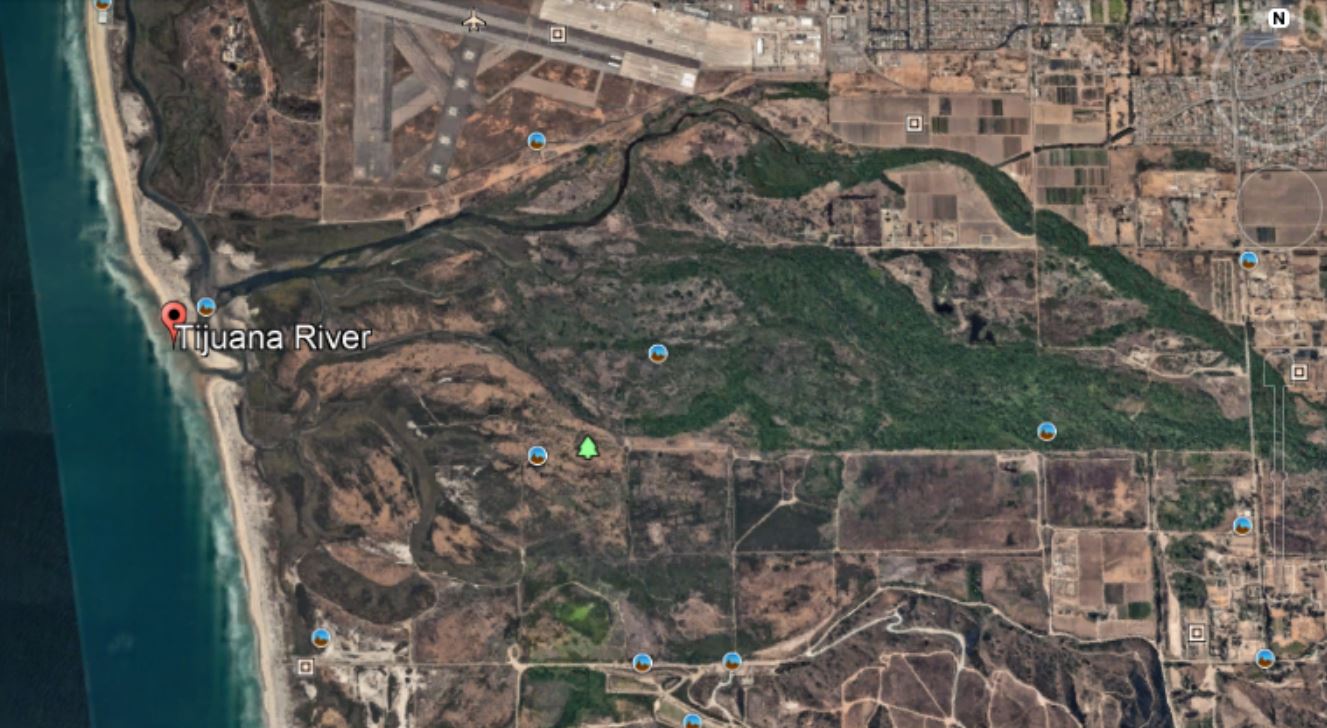The United States-Mexico-Canada Agreement went into effect on July 1, and right away the benefits of this new trade deal are showing up. A massive cleanup of the Tijuana River on both sides of the U.S.-Mexico border is being $300 million commitment in the USMCA by the U.S. Environmental Protection Agency to address wastewater issues shared by the two countries.
The Tijuana River project, which involves actions by the city of San Diego, the International Boundary and Water Commission, and Mexico’s National Water Commission, is expected to reduce sewage spill frequency from the current 138 days per year to 12 days per year, a reduction of 91 percent.
Unlike the much-maligned North American Free Trade Agreement, for which environmental initiatives were relegated to side agreements, the USMCA has an entire chapter devoted to environmental concerns (Chapter 24 of the Agreement).
Skeptics like the International Institute for Sustainable Development note that the language in Chapter 24 says the right things, such as noting that it is “inappropriate to encourage trade or investment by weakening or reducing the protection afforded in the respective environmental law.” But, they add, history suggests that such provisions in prior agreements have had little effect in addressing regulatory backsliding.
Yet even the IISD admits that the USMCA also identifies a broad and ambitious range of environmental and conservation topics to be addressed through trilateral cooperation, within both existing legal agreements and other objectives, including tackling illegal trade in forest products, combating marine plastic litter, and reducing alien invasive species.
The Agreement further includes what should become an important breakthrough in prohibiting subsidies that contribute to overfishing. Chapter 24 includes two categories of prohibited subsidies: Those available to a vessel or operator and those that negatively affect fish stocks. Given that the issue of constraining fishing subsidies had eluded agreement for a decade or more at the World Trade Organization, this, the IISD admits, is a significant step forward.
One aspect of the new three-nation agreement, according to U.S. Trade Representative Robert Lighthizer, is that the focus of America’s trade policy has shifted “from what is best for big, multinational corporations to instead what is best for America’s workers, farmers, and ranchers.”
This means the USMCA “contains significant improvements and modernized approaches that will deliver more jobs, stronger worker protections, expanded market access, and greater opportunities to trade for companies large and small.” As Lighthizer put it, “The absence of the U.S. Chamber of Commerce influence is another big part of the victory that Americans will benefit from, yet almost no Americans will know about.”
The IISD also praised the USMCA for preserving the Commission for Environmental Cooperation (CEC) and continuing the Submissions on Enforcement Matters. The agreement also incorporates the Montreal Protocol, the Convention on International Trade in Endangered Species of Wild Fauna and Flora (CITES), the UN Law of the Sea, and various Food and Agriculture Organization codes related to fish stocks – but does not mention the United Nations Framework Convention on Climate Change or the Paris Climate Agreement.
As to the Tijuana River cleanup, the bulk of the $300 million will be used to expand and upgrade the South Bay International Wastewater Treatment Plant by fortifying its water treatment capabilities and thus stanching the flow of polluted stormwater and wastewater into San Diego. The funding will be paid in quarterly installments of $75 million as EPA grants to its Border Water Infrastructure Program.
This influx of money constitutes a tenfold increase in program funding from 2020 levels. According to San Diego Democratic Rep. Scott Peters, this “massive funding investment … can fix the Tijuana River’s sewage spills once and for all,” stopping an environmental crisis “that has plagued our community for decades.”
As NBC San Diego reported, “The international river has been a longtime problem for residents of Imperial Beach and Tijuana, as sewage and trash from the river have spilled into the Pacific Ocean for decades, often closing beaches near the border and damaging natural habitats along the river.”
For its part, San Diego County has outlined 27 projects to improve wastewater treatment on the U.S. side of the border. It hopes to build new treatment facilities to handle overflow from the Mexican side, where facilities cannot operate on rainy days.
The city’s three-part plan for dealing with overflow starts with treating contaminated water and pumping it deep into the ocean vis the South Bay Ocean Outfall system. Strategy 2 is to pump raw wastewater far into the ocean via a system of pumps and long pipelines. A third proposal is to create in-stream basins that would trap trash and sewage for later collection.
Mexico’s National Water Commission has also contributed $3.6 million to rehabilitate a pump station in Tijuana, which should reduce dry-season wastewater runoff by 70 percent. According to NBC San Diego, “The payment is the first from the plan announced by the Mexican government in October 2019 to address transboundary wastewater spills in the Tijuana River.”
The San Diego reporters further stated that the National Water Commission money will be used to construct a new pump intake and a sedimentation tank to remove silt which will reduce the amount of trash that clogs the pumps and lessen the time the pump station is out of operation for cleaning, decreasing the number of spills and transboundary flows.
Of course, not everyone is thrilled with the USMCA. Prior to its final adoption, The Hill reported that a group of environmentalist organizations had complained about the avoidance of “climate change” and the support for the use of fossil fuels in the agreement and urged a NO vote by Congress.
But Mexican President Lopez Obrador has disappointed supporters of a Green New Deal by showing strong support for oil and gas development – and a disdain for wind turbines – in his country. And President Trump withdrew all participation by the U.S. government in the Paris Agreement in fulfillment of a campaign promise.
